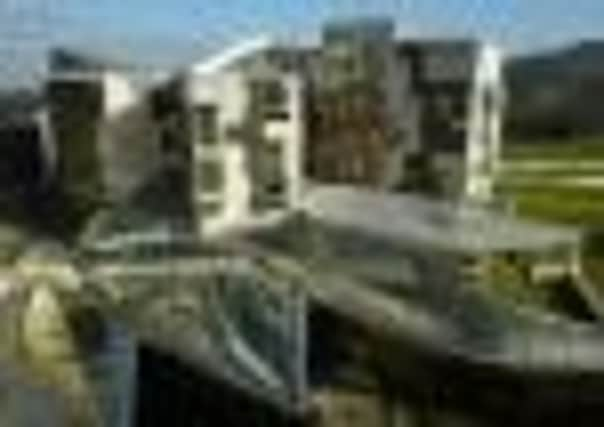Scottish teachers back strike by 9-to-1 margin


Over 90 per cent of those taking part in the Educational Institute of Scotland’s (EIS) ballot voted for industrial action in response to pension changes which will increase the amount teachers are required to contribute to their national scheme.
The union, which represents 80 per cent of Scotland’s teachers, said members felt “betrayed” by the changes, which they argue will lead to a real terms cut in pay.
Advertisement
Hide AdAdvertisement
Hide AdThe result of the ballot follows a decision by the Scottish Parliament’s education committee this week to back Westminster pension reforms.
The union has still to decide when to hold a second formal ballot before teachers go on strike, after which a date would be set for the action.
No decision has been taken on what form industrial action will take, but when teachers last voted to strike they held a one- day walkout in November 2011.
EIS general secretary Larry Flanagan said: “EIS members have given their overwhelming support to the principle of further industrial action in defence of their pensions, and sent a message that, hopefully, even the Scottish Government cannot ignore”.
He said: “The huge majority vote in favour of industrial action, nine to one, coupled with a very solid turnout, demonstrates that Scotland’s teaching force feels betrayed on pensions and is ready to continue the fight for fair pension rights.”
From 1 April, most teachers face a 1.2 percent increase in pension contributions. It means those earning between £32,000 and £39,999 will contribute almost 9 per cent of their pay to their final-salary scheme. The increase in contributions is in line with those for NHS staff and others in the public sector.
About 250,000 workers are affected by the changes, which are part of a move to increase contributions by an average of 3.2 per cent of pensionable pay by 2014-15.
While stressing teachers’ reluctance to strike, the EIS said the increase in contributions, combined with a capped pay increase of 1 per cent, amounted to a real-terms cut in wages.
Advertisement
Hide AdAdvertisement
Hide AdMr Flanagan added: “EIS members across Scotland have shown great patience during pension discussions with the Scottish Government over the past year. However, given the lack of progress and the apparent unwillingness on the part of the Scottish Government to negotiate in good faith, teachers and lecturers are now angry at the position the Scottish Government has continued to take. “To simply replicate the worst of the UK government’s continuing attacks on public sector pensions north of the Border – even when they have the freedom to negotiate a Scottish alternative in relation to the teachers’ pension scheme – is unacceptable.
“We hope this vote sends a very clear message to the Scottish Government that it needs to match action to its rhetoric.”
The union has previously accused education secretary Mike Russell of “hiding behind the coat-tails of Eton toffs” following his failure to come up with a Scottish solution on pensions.
Last year, the EIS called off a planned strike after the Scottish Government agreed to formal discussions over the future design of the Scottish Teachers’ Superannuation Scheme. It followed the first national walkout by Scottish teachers since the mid-1980s in 2011 – part of a UK-wide day of action involving millions of public sector staff.
The strike was the first teachers had taken part in since UK-wide action in 1985-6 over cuts by the Conservative government under Margaret Thatcher.
The latest ballot was returned by a total of 17,669 members, with 16,134 (91 per cent) voting Yes to action. However, turnout was low, at 34 per cent.
The country’s second largest teaching union, the Scottish Secondary Teachers’ Association (SSTA), has also hinted at unrest to come following the education committee’s decision to approve the pension changes. Acting general secretary Alan McKenzie said: “This extra tax on teachers imposed by the UK government simply cannot be justified.
“We are sailing closer to crisis in Scottish schools.”
Eileen Prior, director of the Scottish Parent Teacher Council, said industrial action was unlikely to win support from parents.
Advertisement
Hide AdAdvertisement
Hide Ad“Parents respond with concern to any strike action,” she said. “It’s very disruptive to children’s learning.”
Tory education spokeswoman Liz Smith added: “We support the Westminster government’s policy on pension reform and we also recognise why the Scottish Government must make changes in Scotland.
“The Scottish Government did have the opportunity to ensure the distribution of the proposed increases in employee pension contributions better reflected the characteristics of teacher employment in Scotland and it is disappointing that it has chosen not to do so.
“However, we do not support the idea of strike action by teachers since the only losers would be the pupils.”